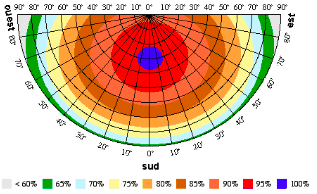I'm continuing my overreaction of the giant clusterfuck of the electric grid issue that the energy capitol of the world just had when it got a little chilly
27Kw Generator incoming, but now I'm looking at solar too. Probably going to go with the PWRCell from Generac for the battery and inverter, and in two months they will apparently have something that will interact with the generator as well as the battery. I'm very interested to see how this turns out, but in the meantime I can get my solar setup figured out

Opinions?
27Kw Generator incoming, but now I'm looking at solar too. Probably going to go with the PWRCell from Generac for the battery and inverter, and in two months they will apparently have something that will interact with the generator as well as the battery. I'm very interested to see how this turns out, but in the meantime I can get my solar setup figured out
- Google says I have 1,640 hours of usable sunlight per year
- Google says I have 1,991 sq feet available for solar panels
- My historical usage is pretty high
Opinions?



